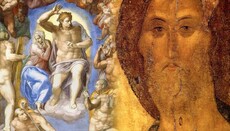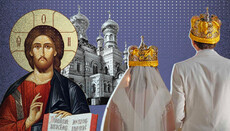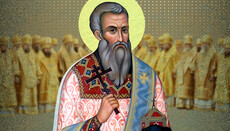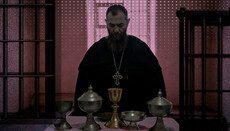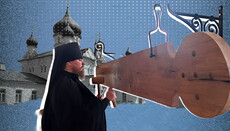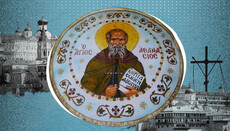How Phanar came from the primacy of honor to the primacy of power
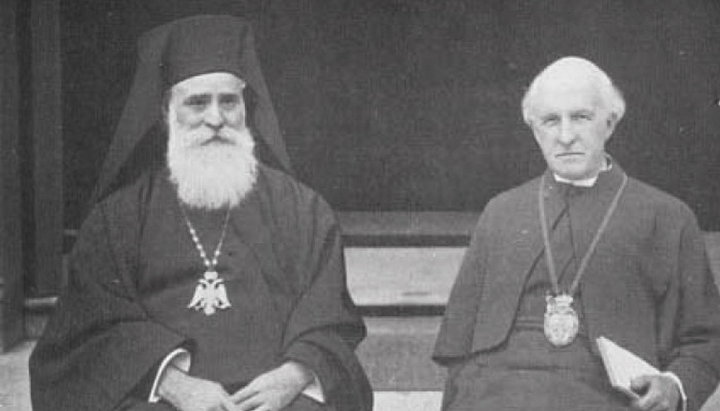
Politics and ecumenism of the Patriarch Meletios (Metaxakes) of Constantinople – the ideological inspirer of Patriarch Bartholomew.
In the previous article, we talked about how in the 20s of the last century, Ukrainian autocephalists tried to get the Tomos of independence of their “Church” from Constantinople.
However, then they did not succeed and were not recognized by the Phanar. There were several reasons for that.
First, after the death of Patriarch Germanos V, a new patriarch was not elected, but only the Primate of the Church of Constantinople could give autocephaly.
Secondly, the hierarchs of the Russian Church, who had served in Ukraine before the revolution of 1917 and after the revolution expelled from the territory of the Soviet Union by the Bolshevik government, rather actively opposed the interaction of Phanariots and schismatics. This is Metropolitan Anthony (Khrapovitsky) of Kiev and Archbishop Eulogius (Georgievsky) of Volyn.
Thirdly, the Patriarchate of Constantinople had other concerns because at that time it seemed that the fall of the power of the Turkish Sultan was very close.
And fourthly, the Ukrainian government of the Directorate did not last long, and there was no one to grant the Tomos even if they wanted to.
All these factors led to the fact that the Ukrainian delegation, headed by the Commissioner of the Ministry of Religion Oleksa Pototsky, returned from Istanbul to Kiev with virtually nothing.
Just as the attempts of the Polish government to transfer the Polish Orthodox Church from the jurisdiction of the Moscow Patriarchate to the jurisdiction of Constantinople were also unsuccessful. Archbishop Anastasius of Chişinău (Gribanovsky), who was then in Istanbul and whom the Greeks assured that “he has no reason to worry about any decisions unacceptable for Russia”, actively opposed this initiative.
But, as it turned out later, there were such grounds, especially during the patriarchate of Meletios (Metaxakes), which is in the focus of this article.
Exile from Jerusalem and Athens
Locum tenens of the Patriarchal Throne Metropolitan Dorotheos died soon, and Metropolitan Nicholas of Caesarea, who was not remembered by anything special, was elected as his successor.
On November 25 / December 8, 1921, the former head of the Greek Orthodox Church Meletios (Metaxakis) became the Patriarch of Constantinople. The history of his “election” for the post of Primate, as well as his personal biography, is so interesting and unusual that it is worth dwelling on it.
The future patriarch was born in 1871 in Crete. At the age of 18, he entered the Seminary of the Holy Cross in Jerusalem, and there, after three years, he became a monk and was ordained as a hierodeacon. From 1900 to 1908, Father Meletios served as secretary of the Holy Synod of the Jerusalem Church.
And in 1908 there was the first serious incident in the life of this person. Patriarch Damian of Jerusalem expelled the young deacon from the Holy Land. The reason for such a tough deed by the patriarch is unknown. The only thing we know for sure is that Meletios was expelled "for activity against the Holy Sepulcher".
The well-known politician, reformer of the Church and the modernist, former Prime Minister of Greece Eleftherios Venizelos, who defended the ideas of pan-Hellenism, was the uncle of hierodeacon Meletios. Therefore, it is not surprising that already in 1910, Meletios was ordained as a bishop in the Patriarchate of Constantinople and appointed Metropolitan of Cyprus and in 1918 he became the Metropolitan of Athens, the First Hierarch of the Greek Church. And then there was a second serious incident in the life of Vladyka Meletios.
As the Primate of the Greek Church, Metropolitan Meletios served for a very short time since already in 1920 he was ... dethroned for "anti-canonical acts." Moreover, he was brought down to the position of an ordinary monk and imprisoned in the St. Dionysios Monastery on the island of Zakynthos, from where he actually fled to America in 1921.
Being twice expelled (from Jerusalem and Athens) and still becoming the Patriarch of Constantinople after that is very difficult. But Meletios did that.
Through bribery and manipulation – to the throne of the Church of Constantinople
On November 25 by old style or on December 8 by new style, Meletios (Mexakes) became the Ecumenical Patriarch of Constantinople. This happened despite the fact that the majority of members of the Holy Synod of the Constantinople Church voted for Metropolitan Germanos (Caravanzelis) of Amasia. 16 out of 17 votes were against Meletios.
Metropolitan Germanos himself said that the ascension to the throne of the Church of Constantinople took place after the sum of $ 100,000 was handed over for the “needs of the patriarchate”.
From the memoirs of Metropolitan Germanos:
“My election in 1921 to the Ecumenical Throne was undoubted. Then one of my secular friends offered me 10,000 liras if I withdrew from the election in favour of Meletios (Metaxakes). Naturally, I rejected this proposal. Then, on the night before the election, I was visited by a delegation of three people, members of the National Defense League (an organization created by military Greek officers in Constantinople and advocating for the independence of the Greek part of Asia Minor – Ed.) ... They said that Meletios has the opportunity to contribute $ 100,000 for the needs of the patriarchate and, being in very friendly relations with the protestant bishops in England and America, can be useful in international affairs. Therefore, national interests require that Meletios (Metaxakes) be elected patriarch. This was the desire of Eleftherios Venizelos ... For these reasons and for the good of the people, I accepted this offer.”
As a result, Metropolitan Germanos agreed to withdraw his candidacy in favour of Metropolitan Meletios. However, members of the Holy Synod who voted against the former Primate of the Greek Church did not agree to that. The bishops suggested postponing the election of the patriarch, which was done.
Within two days, all the bishops who voted against Meletios were replaced by others. Therefore, on December 8, 1921, 16 of the 18 new members of the Holy Synod of the Church of Constantinople gave their votes for Metropolitan Meletios (Metaxakes), who became the patriarch.
Already on December 30 of the same year, most of the hierarchs of the Patriarchate of Constantinople, who, under the chairmanship of Metropolitan Constantine of Cyzicus, gathered in Thessaloniki, refused to recognize the election of Meletiщs as lawful and canonical. The bishops sent a message to the Patriarchs of Jerusalem, Alexandria and the Antioch, who agreed that Metaxakis was enthroned with a clear violation of the sacred canons. But even such obvious opposition did not prevent Meletios from becoming a patriarch.
Politics and ecumenism
Almost immediately after the election, the new patriarch began to build ties with the powers that be. The only goal he pursued, at least at the time, was the creation of the Greek Kingdom in the western part of Asia Minor.
To implement his plans, Meletios met with US President Warren Harding in America, and on the way to Istanbul he visited London and Paris, where he met with the prime ministers of these countries.
In January 1922, the ship carrying Patriarch Meletios entered the port of Istanbul under a yellow Byzantine flag with a black eagle, which caused a strong protest by the Turkish authorities.
On January 22, the enthronement of the new patriarch took place. Pat. Meletios in his word outlined his future activities in such a way: “I give myself to serve the Church in order to promote from its first throne the development of closer friendly relations with non-Orthodox Christian Churches of the East and West, to advance the cause of unification between those and others."
And Meletios kept his word because it was he who actually laid the foundations of what is today called ecumenism. He also did a lot to get as close as possible to the Catholics.
According to the Greek ambassador in London, Meletios was the first Orthodox hierarch who took part in the Anglican worship service. It happened on December 17, 1921 (i.e. immediately after the election), during his visit to the capital of Great Britain.
Later, in 1922, Meletios created a commission that studied the question of Anglican ordinations and came to the conclusion that “the Anglican ordinations are completely legal”, which means that the Anglicans should not be re-ordained.
Phanar and conquest
Meletios understood perfectly well: at that time, the Moscow Patriarchate was in such a difficult position that it could not offer any tangible resistance to any actions of the Phanar. And the new Patriarch of Constantinople decided to take advantage of this weakness.
At the end of 1921, he granted the right (it is not clear where this right came from) to the Church of Greece to accept under its jurisdiction the Greek parishes of the Moscow Patriarchate, which were located in North America. Naturally, this decision was not coordinated either with Patriarch Tikhon of Moscow or with the hierarchy of the Greek parishes themselves. However, as they say, “the music did not play long” – not for long were these parishes under the jurisdiction of the Greek Church.
On March 1, 1922, the Holy Synod of the Patriarchate of Constantinople made a decision on the mandatory and exclusive submission to it of the entire diaspora of the Orthodox dispersion. According to the decision, all Orthodox Christians who lived in emigration (that is, outside the borders of their homeland) should go under the jurisdiction of the Patriarchate of Constantinople. This canonical chaos hit the Russian parishes that existed in Europe and other countries most hard.
Already on March 14, Meletios issued a decree according to which the Greek Archdiocese of America, created about a month ago, was subordinated to the Patriarchate of Constantinople.
On April 5, 1922, Patriarch Meletios established the Metropolis of Thyateira with the office in London, appointed the Exarch of Western and Central Europe, and demanded that all Orthodox Christians submit to this Exarch, regardless of nationality or jurisdictional affiliation. To understand the scale of the arrogance of Patriarch Meletios, suffice it to say that, for example, in the territory of Great Britain at that time there were only four Greek parishes that the Phanar had taken from the Greek Church.
In the same April of 1922, Meletios addressed the Russian bishops in North America with a proposal to transfer to the jurisdiction of the Church of Constantinople, and after the Russian bishops rejected the proposal, he appointed his exarch to America.
His justification for this move was a reference to Canon 28 of the 451 Council of Chalcedon, which he claimed granted the Ecumenical Patriarchate jurisdiction over Orthodox Christians in all "barbarian lands". However, before Patriarch Meletios, not a single Patriarch of Constantinople interpreted this rule in the sense of submission to the throne of Constantinople of the entire diaspora. Just as none of the previous patriarchs of Constantinople had attempted to replace the primacy of honor with the primacy of power. Neither did they try to substitute the conciliarity of the Church with the thesis about the supreme court of Constantinople in cases of the appeal of one dissatisfied party in a church dispute.
But it was precisely these theses that became the basis of the rule of Meletios (Metaxakes), and it is precisely these principles that the Church of Constantinople, led by Patriarch Bartholomew, today preaches.
It can be said that Meletios became the first patriarch who waged a war of conquest in foreign countries against a foreign flock. The aggressive campaign, which contradicted and contradicts not only the canons and the Christian conscience but also common sense.
Metaxakis became one who brought so much harm to the Church that its effects are still being felt.
The topic of the next article is the emergence of new autocephalies initiated by the Patriarchate of Constantinople, headed by Meletios (Metaxakes).
